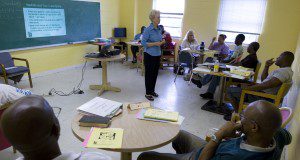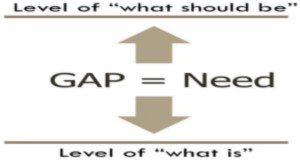This third publication in the Conducting the Needs Assessment series outlines a range of motivations, barriers, and common objections Extension educators and other service providers may have pertaining to needs assessments. It is not an easy task to conduct a needs assessment, yet there are many motives for implementing one. This new 4-page publication of the Department of Agricultural Education and Communication discusses strategies for increasing educator motivation and removing barriers and objections to conducting a needs assessment. Written by Matt Benge.
https://edis.ifas.ufl.edu/wc386
Tag: Conducting the Needs Assessment series
Conducting the Needs Assessment #10: The Delphi Technique
Previous publications in the Conducting the Needs Assessment series outlined why, how, and when Extension educators and other service providers should use needs assessments in their programs. The four preceding publications in the series provide Extension educators and other service providers with specific techniques that can be used in needs assessments, and this new 5-page publication provides an overview of using the Delphi technique to conduct a needs assessment. Written by Laura Warner and Amy Harder, and published by the UF/IFAS Department of Agricultural Education and Communication.
https://edis.ifas.ufl.edu/wc364
Conducting the Needs Assessment #11: Causal Analysis Techniques
This new 3-page publication in the Conducting the Needs Assessment series provides Extension educators and other service providers with an introduction to two techniques that can easily be used when seeking information about relationships between causes and needs: fishboning and cause and consequence analysis. Written by Amy Harder and published by the UF/IFAS Department of Agricultural Education and Communication.
https://edis.ifas.ufl.edu/wc352
Conducting the Needs Assessment #2: Using Needs Assessments in Extension Programming
This second publication in the Conducting the Needs Assessment series provides Extension educators and other service providers with a foundational underpinning of how the needs assessment fits within the program planning process. Both formal and nonformal educators seeking to develop and deliver an educational program must first be informed of what their audience lacks in order to develop the right curriculum or training, and therefore conducting a needs assessment is a priority in the program development process. This new publication of the UF/IFAS Department of Agricultural Education and Communication was written by Matthew Benge and Laura Warner.
https://edis.ifas.ufl.edu/wc347
Conducting the Needs Assessment #4: Audience Motivations, Barriers, and Objections
A successful needs assessment is contingent on participation from the right people, so understanding potential motivations, barriers, and objections specific to your participants is critical. This new 5-page publication, the fourth in the Conducting the Needs Assessment series, provides Extension educators and other service providers with an overview of motivations, barriers, and objections specific to participants in needs assessments. Written by Laura Warner and Matt Benge and published by the UF/IFAS Department of Agricultural Education and Communication.
https://edis.ifas.ufl.edu/wc342
Conducting the Needs Assessment, Part 1: Introduction
An integral step in the program development process is identifying the needs of a community. Educators seeking to develop and deliver an educational program must first be informed of what their audience lacks in order to develop the right curriculum or training. This initial publication in the Conducting the Needs Assessment series provides a brief introduction to the planning, implementation, and prioritization of needs within a community or specific clientele group. This new 4-page publication of the UF/IFAS Department of Agricultural Education and Communication was written by Matthew Benge, Amy Harder, and Laura Warner.
https://edis.ifas.ufl.edu/wc340


